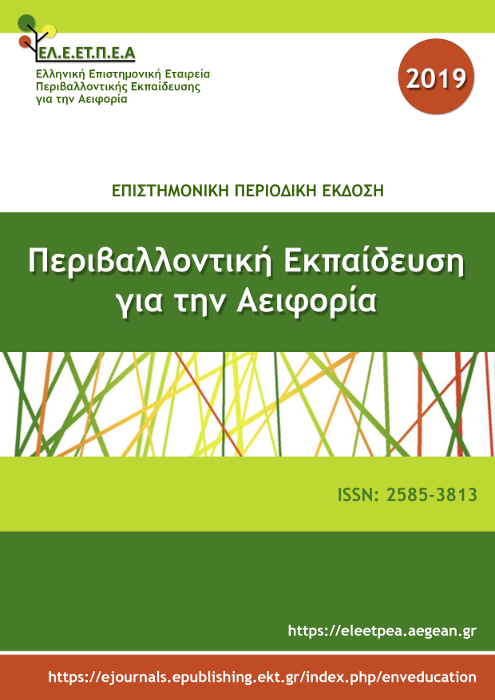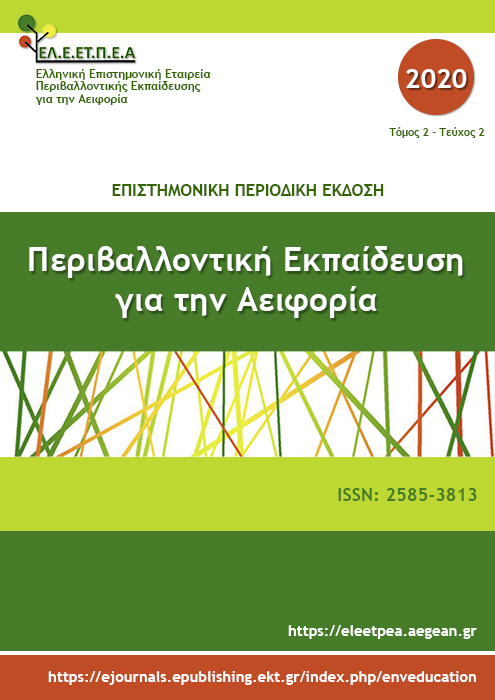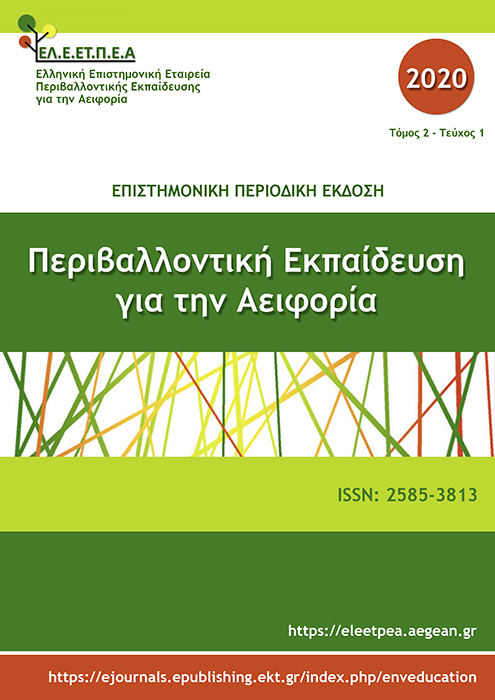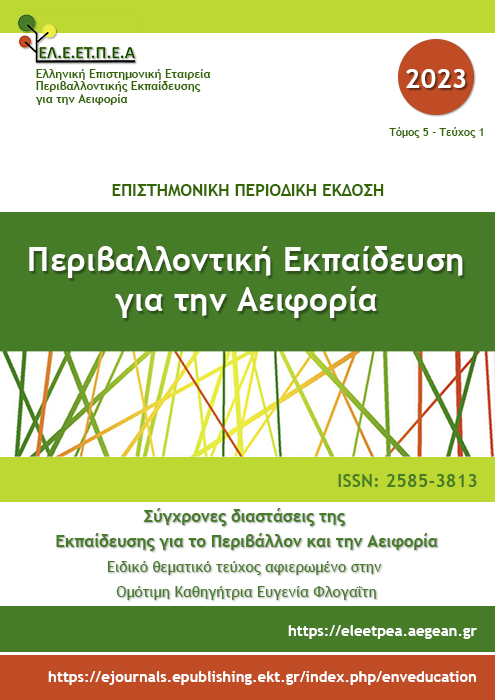Εκπαιδεύοντας τους Θορώ των πόλεων: μία εμπειρία βιωματικής προσέγγισης της μη ανθρώπινης φύσης στο πλαίσιο της περιβαλλοντικής εκπαίδευσης
Abstract
Article Details
- How to Cite
-
Τσεβρένη Ί. (2019). Εκπαιδεύοντας τους Θορώ των πόλεων: μία εμπειρία βιωματικής προσέγγισης της μη ανθρώπινης φύσης στο πλαίσιο της περιβαλλοντικής εκπαίδευσης. Environmental Education for Sustainability, 1(1), 14–24. https://doi.org/10.12681/ees.16963
- Section
- Articles

This work is licensed under a Creative Commons Attribution 4.0 International License.
Authors retain copyright and grant the journal right of first publication with the work simultaneously licensed under a CC-BY-NC-SA that allows others to share the work with an acknowledgement of the work's authorship and initial publication in this journal.





